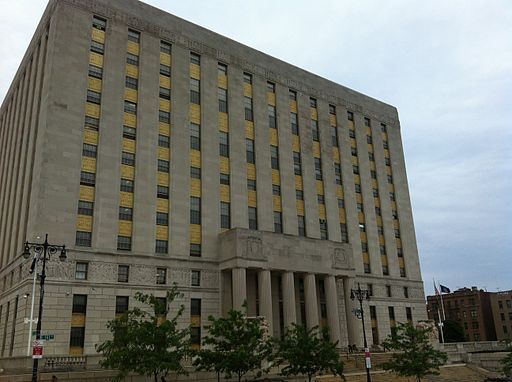By Aliyah Schneider/ Bronx Times
Disclaimer: This story details various accusations of sexual abuse.
A homelessness case worker on unpaid leave is suing the New York City Department of Social Services (DSS) and two of its employees over allegations that an office manager subjected her to relentless sexual abuse while her supervisor turned a blind eye.
The suit, which was filed by Trishana Jones on Sept. 12 in Bronx County Supreme Court against DSS — as well as her alleged harasser and direct supervisor — claims that the office manager sexually abused her from 2019-2022 and the agency failed to properly investigate it after she reported it.
Her lawsuit centers on allegations against Dason Noble, an office manager at the Northern Boulevard Queens DSS office they worked at together, who had the authority to discipline her. Jones, who lives in the Edenwald Section of the Bronx, initially thought they might develop a consensual romantic relationship, but instead, he abused his authority, according to Jones’ claims.
“I deserve justice for what I had to endure, and the world needs to see what happened,” Jones, 38, told the Bronx Times in her first interview since filing the lawsuit. “And I don’t want to be in the darkness anymore.”
According to the suit, Noble regularly coerced her into having sex with him in the workplace despite her saying she did not want to. She also accuses him of making degrading sexual comments and groping her in the office, ordering her to take explicit pictures in the bathroom for him, locking her in a storage room with him and recording sexual encounters without her consent, forcing her to take a contraceptive pill and choking her nearly to the point of unconsciousness, which led to bruising on her neck.
In one instance, Jones walked home in the winter without a jacket because he took it while trying to lure her into the stock room, according to the complaint.
Jones is requesting back pay, interest, compensatory and punitive damages, past and present pain and suffering damages, as well as attorneys fees. She has been on unpaid leave since Nov. 7, 2022, having been diagnosed with PTSD as a result of the alleged ordeal, according to her lawyers.
A DSS spokesperson told the Bronx Times that the agency cannot comment on ongoing litigation or investigations involving personnel, but that the well-being of staff is its “top priority.” The agency investigates, verifies facts and takes appropriate action — including prompt disciplinary action when warranted — when it learns of sexual harassment, the spokesperson said.
“We do not tolerate any instances of sexual harassment and take any such reports incredibly seriously,” the spokesperson added. “As we conduct a thorough investigation, we are committed to taking necessary action against any bad actors when warranted.”
Read the full article from the Bronx Times and a statement from Partner James Vagnini here.



